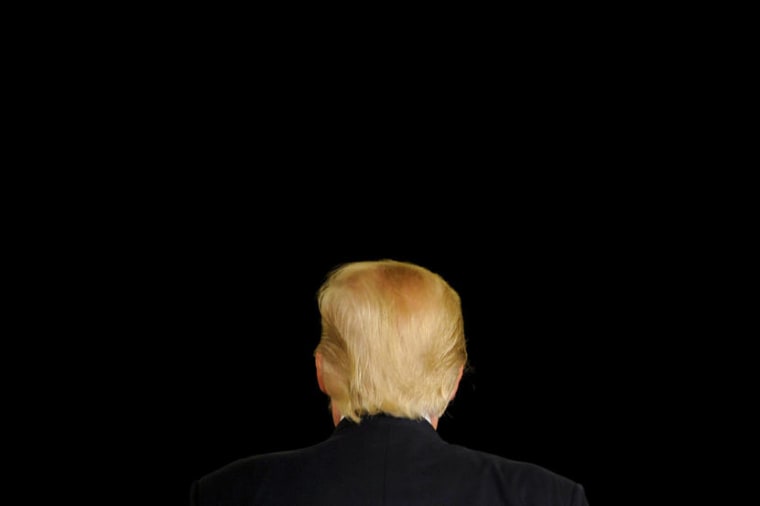Three days after Donald Trump approved an airstrike that killed Iranian Gen. Qassem Soleimani, there was all kinds of speculation about how officials in Tehran would retaliate. The American president published a tweet with a stern warning to Iran, warning them of dire consequences if the country tried to counter-attack.
"The United States just spent Two Trillion Dollars on Military Equipment. We are the biggest and by far the BEST in the World! If Iran attacks an American Base, or any American, we will be sending some of that brand new beautiful equipment their way...and without hesitation!"
As is often the case, Trump flubbed some of the relevant details -- for example, the United States has spent $2 trillion on defense over three years; it's not something that "just" happened -- but the underlying point was clear: if Iran launched a retaliatory strike, the American president would target Iran.
On Tuesday, Iran launched a dozen ballistic missiles at bases housing U.S. forces. A day later, thankfully, Trump suggested he didn't much care about the retaliatory strike.
For those of us who hoped to see a de-escalation in tensions, this was unambiguously good news. After all, the alternative was a possible war with catastrophic consequences. It's nevertheless notable, however, that Trump made a rather specific threat over the weekend, and as of the president's public remarks yesterday, he doesn't appear to have any intention of following through on that threat.
In fact, Trump instead announced a new round of sanctions against Iran, which according to administration officials, may not actually be implemented.
Again, the steps away from the brink are worthy of relief, especially given the very real possibility of a cycle of deadly violence. But there's also a larger issue of Trump making a habit of making bold threats, on a wide variety of issues, only to retreat soon after.
On tax policy, for example, the president said in late 2017 that he wanted the corporate tax rate slashed to 20%, and he told lawmakers this was "very much a red line" he would not cross. Soon after, congressional Republicans ignored Trump's vow, and he retreated.
In early 2019, Trump vowed to shut down the U.S./Mexico border unless his demands were met. The Republican's demands were ignored, and he again retreated.
As regular readers know, bluffing has become an unfortunate staple of Trump's presidency. Trump bluffed during his government shutdown. He bluffed during the fight over health care. He bluffed with North Korea. He tried bluffing with James Comey. He bluffed with China – more than once.
As a Washington Post analysis added last year, “Though the president routinely touts his abilities as a dealmaker, he often gives in when pressed.... From the war in Afghanistan to his family separation policy to threats to close the southern border, Trump will often float policy proposals with little strategy for how to implement them, then surrender when the proposals flounder.”
The irony is, the White House goes out of its way to pretend this reality doesn’t exist. When Trump abandoned the international nuclear agreement with Iran for reasons that never really made any sense, he declared, “The United States no longer makes empty threats. When I make promises, I keep them.” Which is true, just so long as we overlook all of the threats he backed away from.
It's just the incessant lying that does damage to Trump's credibility.
MORE: Today's Maddowblog

